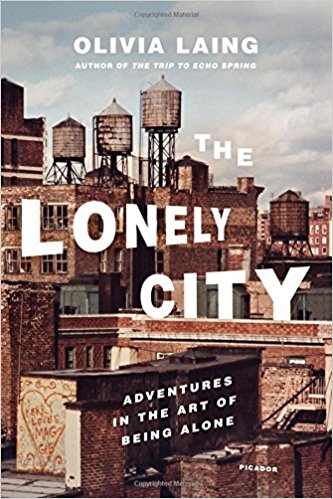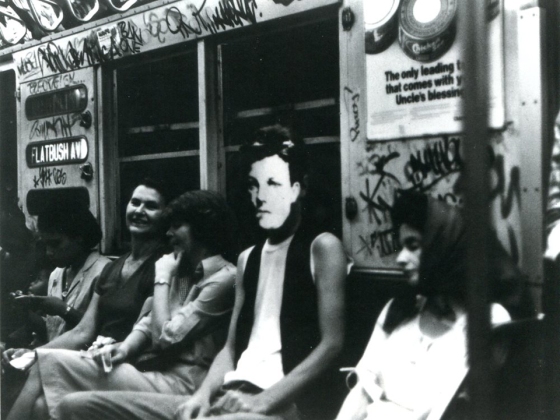
“What does it feel like to be lonely? It feels like being hungry: like being hungry when everyone around you is readying for a feast.”
I had to return this book to the library this morning and I felt a real pang at giving it back. It’s been a long time since I felt that kind of connection to a borrowed book. (Everything I Never Told You a few years ago in Austin maybe?) But I’m actually really glad that I read the slightly-water-warped Queens-communal copy of this book, because it felt like exactly the kind of evidence of other people’s search for connection that the book describes.
British writer/critic Olivia Laing moved to New York City to follow a romantic partner who then promptly broke her heart. Finding herself isolated in a city filled with far too many people (my own editorializing about my own experience in this city is unavoidable here) she burrows into the rabbit hole of studying lonely New Yorkers (and one Chicagoan) who came before her and used art to try to articulate their predicament. Through the biographies and work of artists as varied as Andy Warhol, Edward Hopper, and singer Klaus Nomi, she examines loneliness not just as a feeling, but as state of existence. One that can have truly devastating consequences (like for the to-me-disturbing work of the outsider artist Henry Darger whose indigent childhood and mostly solitary adulthood worked it’s way out in twisted mythological paintings of violence towards child-like cherubs).
Laing’s approach, well-researched and articulated academic argument mixed with a breathtaking vulnerability about her own lonely period, drew me in from the first page and never let me go. Some of these artists I had heard of before (a few like Warhol and Nan Goldin I already loved) but her obvious affection for her subject made me want to delve into their work and lives. I especially fell in love with her depiction of the multimedia artist and activist David Wojnarowicz, and I can’t wait to delve more deeply into his work. The act of creation, according to Laing, is an attempt at connection, and though she may worry about the virtual nature of this (the last chapter is a bit of a polemic against the faux-sociability of our networked culture), I couldn’t help but feel a little less alone reading this book.

David Wojnarowicz, Arthur Rimbaud in New York (On Subway), 1978-79.
